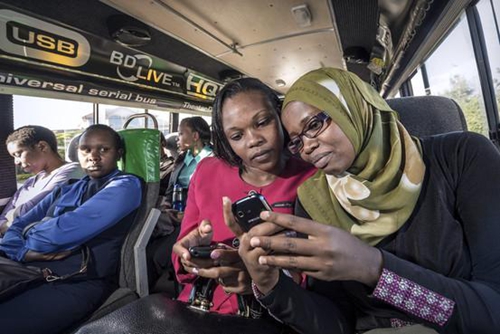By Miroslav Atanasov, Ph.D., Renmin University of China
As the internet has become an inseparable part of our daily lives, it has become necessary for increased supervision over it. As a parent, I am concerned about the content my child views.

Accordingly, I side with parents who welcome a cleaner internet, such as the one in China that does not expose young children to excess violence, narcotics, suicide guidance, and pornography as compared to the West. African countries should learn from China's example to create more family-friendly internet.
Beijing takes uncompromising efforts to combat online pornography. Companies posting internet pornography have earned huge profits, but they have inflicted tremendous harm to individuals, families, and society.
Millions have gotten addicted to viewing porn, including teenagers. There are many online games with obscene and vulgar content. In 2014, China had renewed its campaign against internet porn, which was welcomed by most Chinese families.
China has about 600 million internet users and many of them are minors. The teenage years are a sensitive period for a young person's mental, emotional, and physical development. They are much more susceptible when exposed to violence and pornography.
Beijing has fought against the sex trade and cracked down on cyberspace, which is subject to the same regulations as society. The campaign against internet porn contributes to better mental health of youth and the greater good of society.
Other nations have realized the necessity for controlling access to internet content. The first country in Africa with stricter internet legislation was the Republic of South Africa.
Even though the nation has garnered praise for its civil liberties and progressive constitution, the 2015 legislation, proposed by the Film and Publication Board (FPB), had issued far-reaching censorship provisions for online content.
The new regulations restricted films and games distributed online and publications containing inappropriate sexual material, violence and hate speech. The FPB obtained the ability to regulate such videos and delete them from the internet in favor of the public interest.
The Justice Alliance of South Africa, a Christian advocacy group, has been a major proponent of the legislation, which was first introduced back in 2010, calling for internet service providers to be forbidden from distributing any pornographic materials.
They could lobby legislature to pass laws, but for some time they were opposed by the constitutional court as propagating limitations on freedom.
In 2015, however those laws were passed requiring pre-screening and filtering of online content. While some see this move as old-fashioned moral censorship, others view it as a mechanism to infringe upon civil liberties comparable to the apartheid era before 1994.
Other African countries are trying to combat cybercrimes and prosecute people who spread illegal content such as child pornography, defamatory materials, and copyright violations.
Countries in the East African Community (Kenya, Tanzania, and Uganda), as well as the Southern African Development Community (Malawi, Mozambique, South Africa, Zambia, and Zimbabwe) all have planned to standardize cybercrime laws.
Last week as opposition protests turned violent in Kisumu, the Kenyan government is discussing legislation, which would regulate the use of social media, according to Nairobi News.
Dennis Itumbi, State Director of Digital Communication, said bloggers and other users of social media were abusing online platforms by attacking perceived enemies and spewing hate messages.
Since no legal actions could be taken against them, some individuals have declared others dead on the channels. According to Itumbi, consultations were carried out with the police and the Kenya Film Classification Board in order to curb the spread of hate messages as the 2017 General Election is approaching.
The director does not believe the new bill targets opposition bloggers, but is meant to safeguard public security. Other countries in Africa, including Zimbabwe, have sought to establish internet censorship, but have not had the means to do so.
Certainly, the western openness under the pretext of freedom of speech, allows the internet to contain all types of immorality and filth, which is harmful to families and youth.
African countries can learn from China's example and restrict their internet content, especially in regards to violence and pornography.

Miroslav Atanasov, Ph.D., Renmin University of China
( The opinions expressed here do not necessarily reflect the opinions of Panview or CCTV.com. )

Panview offers an alternative angle on China and the rest of the world through the analyses and opinions of experts. We also welcome outside submissions, so feel free to send in your own editorials to "globalopinion@vip.cntv.cn" for consideration.















